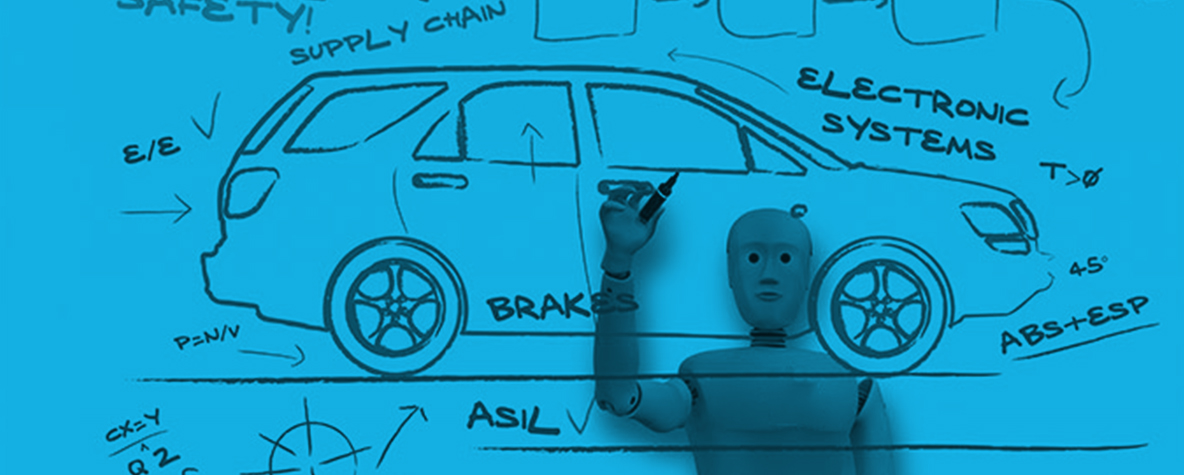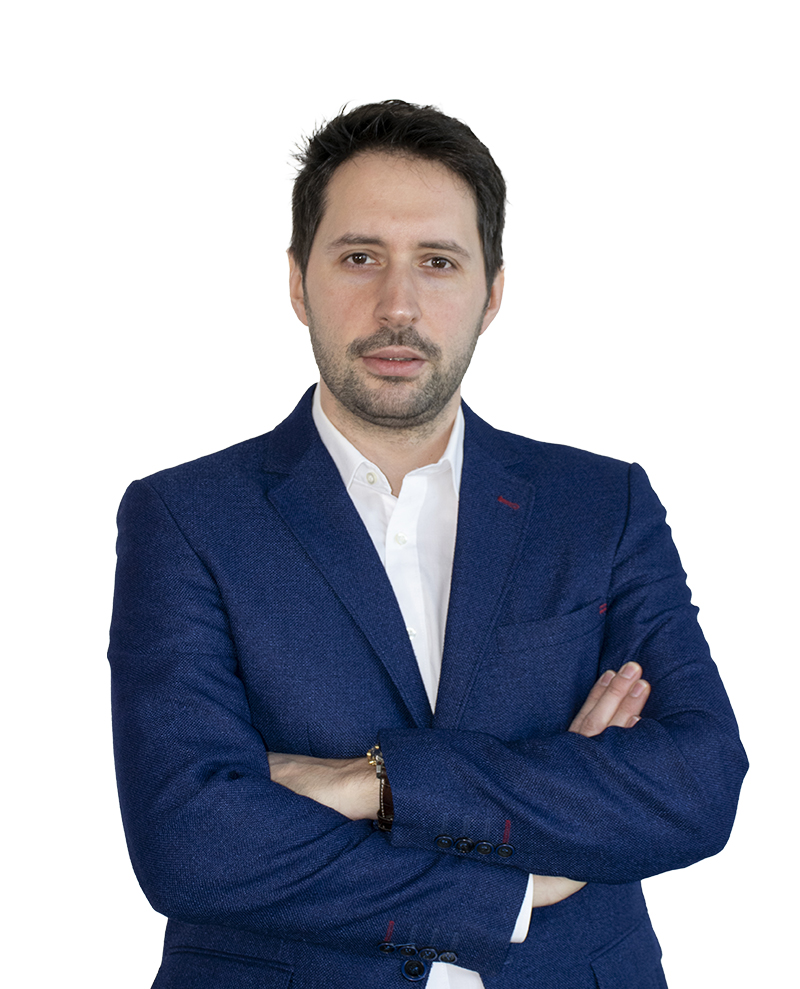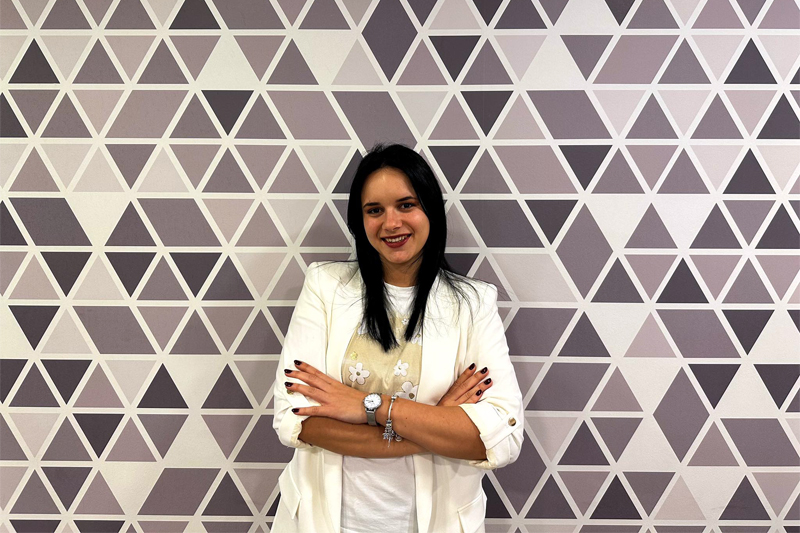
Do you know what the automotive world, films, lectures, and research have in common? They all have Vladimir Marinković. In this regard, his versatility in the industry proved to be fertile ground for a different view on technology. For example, you can talk to him about movies and have him explain to you what is technically possible, and what is still a wild imagination. And why is that? Well, Dr. Marinkovic is currently an assistant professor at the Faculty of Technical Sciences, University of Novi Sad, a Functional Safety Instructor at the University of California San Diego Extension, and an instructor for several courses at NIT Academy. We stole some time from him to quiz him about his beginnings, the industry, and his career.

Five years ago you entered the world of functional safety, what is the story today?
Yes, it's been five years since I entered that world through a project for an automotive company that we were working with at the time. A lot has changed since then, I've taken different courses and gained different experiences since this is my main field of interest at the moment. I’m still learning and we are all learning together and tailoring recommendations that come to us from different standards and from theory as well. And I would say for one main reason - to create safe systems. I think that's the main difference in the story today - we strive to create safe systems while building them, and not to simply meet some certification requirements.
How do you stay current and keep developing your skills? Is there a person who motivated you in your professional development?
You definitely need to be a part of the industry to feel how it breathes and where it leads you and thus acquire new skills - or at least realize the need for a new skill. You can easily master new skills with someone's help, for example through professional courses, and it’s important to know that this industry is constantly evolving so needing help and further development is part of our everyday life. I could not single out one person, many of my colleagues influence my career motivation. I truly think that in this community we all influence each other. If we are talking about the Functional Safety area, I could say that it is our CEO Milan Bjelica, but perhaps equally the rest of the team that deals with this topic, of which I am also a part.
Which projects were difficult, but you completed them successfully and with pride? Tell us about those challenges, how did you tackle them?
Every project I worked on had some challenges. The projects from the automotive industry were perhaps the most difficult for me because they included Functional Safety from the start, which was something quite new for me at that time, but again similar enough to some AeroSpace projects I had participated in before. The application of experiences and good practices gained while solving similar problems in the past proved to be a good solution. Of course, the help of experts in the given field dramatically speeds up the problem-solving process, so it's always good to turn to already established professionals for help in the form of training, consultancy, and similar.
You were on a podcast with our CEO Milan Bjelica and you talked about the movie Interstellar seen through engineering glasses. Has it become a part of your everyday life, dissecting things around you through the prism of your profession?
I have to admit that I did start thinking that way. First of all when it comes to the seventh art, but also in other situations. I used to watch movies and think about if something was realistically possible to happen (in the sense of whether it was fiction or not). Today when I think about movies, I think about whether it is realistic to do something like that from the current technological achievements point of view. :)
You are part of the NIT Academy as a Functional Safety Instructor. What is the thing you most want to convey to the participants of the course? Considering that the course is of a certain duration, how do you prepare the material you teach?
As an instructor at NIT Academy, I generally try to teach the participants both theoretical and practical knowledge, but also give them insight into the industry experience, which I think is the key link. By the way, in addition to courses in Functional Safety, I am engaged in courses in the field of Embedded Linux (Embedded Linux and Embedded Linux Advanced), that is, embedded systems based on Linux and its application in such systems. Through these courses, I also try to transfer experiences from using Linux and other Unix-like operating systems that are used today in the automotive industry.
However, the main focus is on the Functional Safety program where I am engaged as an instructor in the Safety Analysis Techniques, Safety Verification and Validation, and Automotive Safety Project courses. In these courses, considering the limited time we spend in live classes (which seems to be well moderated for someone who is working on a commercial project at the same time while attending the course), good time organization is very important.
What has proven to be an excellent practice is to conduct part of the teaching through premade video materials that we prepare before the course. Video materials are available to participants at any time throughout the course, and they are expected to be prepared for each session of contact teaching by reviewing those video materials, and possibly additional written materials or the specified literature. Then it is much easier to deepen the given topic, elaborate on the problem and then solve it during a live session.
Do you have any tips and tricks for those who want to work in safety-critical industries?
Functional safety is a topic that can’t be dealt with through simple tips and tricks. Certain knowledge must be acquired, new skills must be mastered. The only advice for those who want to do it seriously is to contact NIT Academy and come to learn with us together. And when I say “learn together”, I really think that. The participants often introduce interesting problems that they are working on, they have certain interests in the field, which may not be covered by the course, which we handle by researching it and including it in that course.
The most common reasons why some give up on the course or study itself?
Honestly, these are very rare situations in professional courses, because the motivation is much different (higher) if we compare them with (similar) courses at the university. Of course, I would exclude some obvious and justified reasons here. Apart from those, in a very small number of cases, this happened due to lack of time, a change in planned obligations, and perhaps more often due to insufficient familiarization with the complexity, topics and requirements of the course itself, before registering for the course. This can lead to a loss of motivation and eventually giving up.
I believe that a job interview in this industry is particularly demanding. Do you have any advice on how to prepare for it?
I'm not a supporter of any special preparation for a job interview, that is, I think that you can't prepare for it just like that. I also think that an interview that would require some quick preparation to be able to overcome is not a good interview. In that case it is probably just a test of some short-term knowledge and often does not say enough about the candidate. In my opinion, a good interview should check the candidate's potential, the skills that are acquired through work, experience, and various professional trainings in the required field. That is my opinion and kind of advice for both parties.

Is there a goal that you have set for yourself that has not yet been fulfilled?
Not in the industry at the moment, but perhaps in the academic path that I would like to devote a little more time to in the coming years. Participating in NIT Academy’s courses was supposed to replace that need of mine that I could not satisfy through the industry. Of course, apart from the contribution to the academic community that we make through such ventures, here I am also thinking of personal advancements in my academic career.
What are your plans for the future, and where do you see yourself in the next five years?
I don't expect big changes - I'm sure that for the next five years I'll be dealing with functional safety, there are still a lot of open topics in that area. I expect that we will all further strengthen our knowledge, and this is exactly the goal of NIT Academy and our training programs.
And finally, where do you see the industry in the future?
When I think about the automotive industry in the near future, I think that there will be a slight (but important) change in direction in terms of increasing security compared to the existing safety requirements. I don’t think about anything that is much further ahead, though.

More about Vladimir Marinković
- Ph.D. from the Faculty of Technical Sciences, University of Novi Sad, with the thesis "An approach to automatic parallelization of sequential machine code".
- Working for RT-RK (Novi Sad) since 2010. As of March 2019, he is mostly involved in automotive projects with an emphasis on automotive safety and specifically Functional Safety as the affiliate of RT-RK Automotive.
- In 2011, he was elected to the position of teaching assistant at RT-RK, Research and Development Institute for Computer Based Systems.
- He studied Safety Engineering at the FH Campus Wien, Vienna, Austria in 2020/2021.
- Since October 2021 as the affiliate of TTTech Auto, Austria. Before that, he was working as an RTL designer, and as a system and software architect.
- Assistant professor at FTN Novi Sad.
- Functional Safety Instructor at the University of California San Diego Extension.
- Instructor for several courses at NIT Academy.



